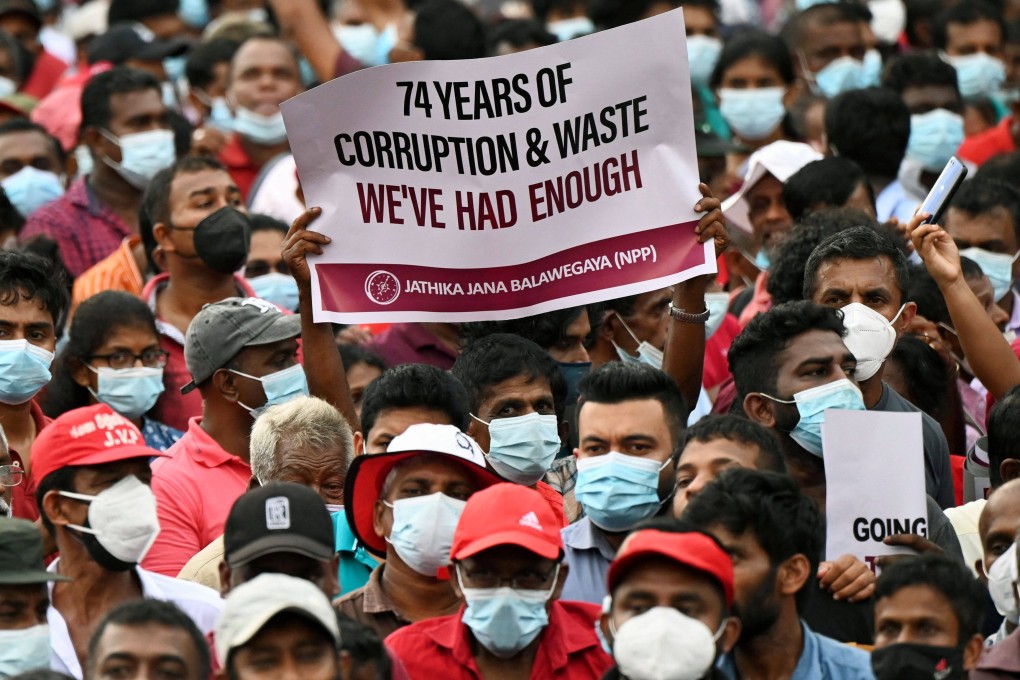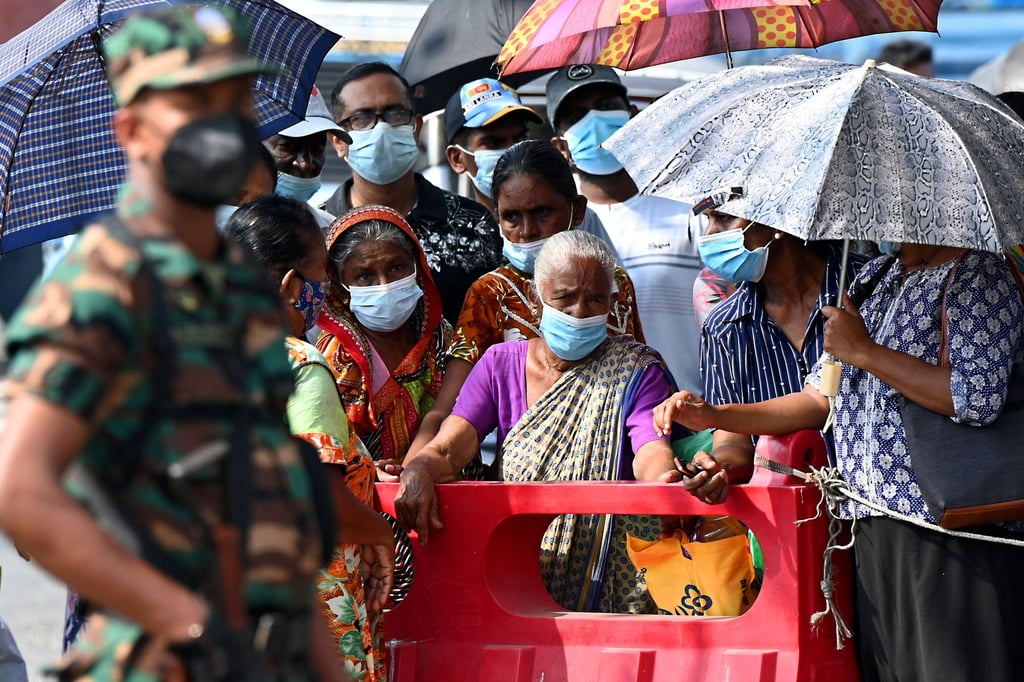Struggling Sri Lanka hits up India for cash – but China still has deeper pockets, analysts say
- The cash-strapped island nation is facing an economic meltdown with rolling blackouts and shortages of food, petrol and paper as it runs out of foreign reserves
- Sri Lanka already owes billions to Beijing, but has gone back to China, India and the IMF seeking further bailouts as its financial crisis continues to spiral

The temperature in Colombo was an uncomfortable 31 degrees Celsius (88 degrees Fahrenheit) on Tuesday, but it felt hotter for the Jayasinghe family because for six hours they’d had no electricity.
Tavish Jayasinghe, an accountant, sat on the veranda of his house in the Sri Lankan capital, reading the bad news in the paper while the ceiling fan remained stubbornly still.
With empty coffers, the government has no money to pay for the fuel needed to operate power plants around the clock, and has resorted to scheduled power cuts.
It also lacks funds to pay for petrol, cooking gas, medicines, and imported food items.

“I need petrol in my scooter but after seeing the queues at the petrol pump that went on forever, I decided not to risk sunstroke and stay at home instead,” Jayasinghe said.
It was a wise decision. On Sunday two men in their seventies died while waiting in a four-hour long queue for fuel. This week, authorities posted soldiers to help distribute fuel at state-run Ceylon Petroleum Corporation pumping stations as tens of thousands endured such queues.